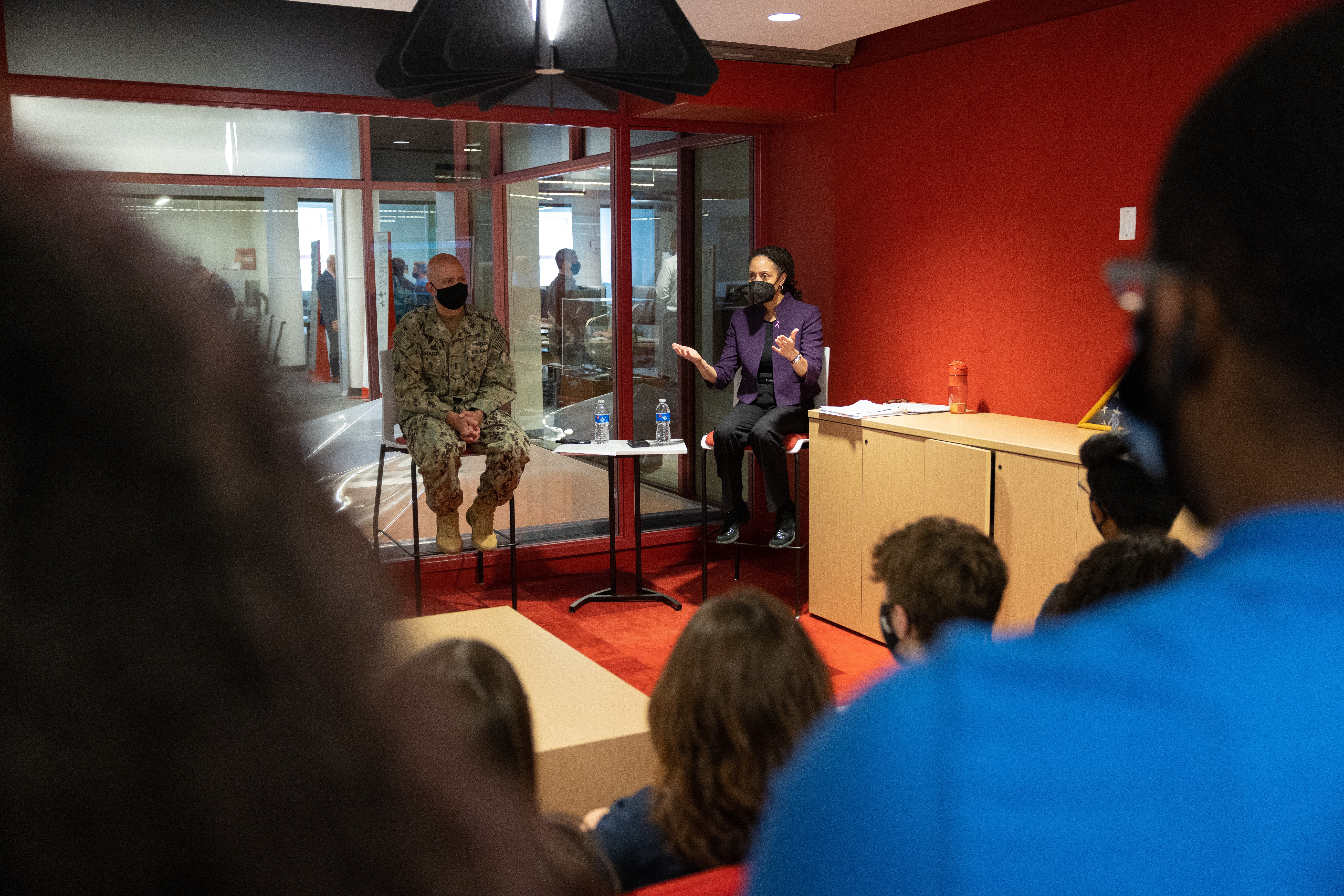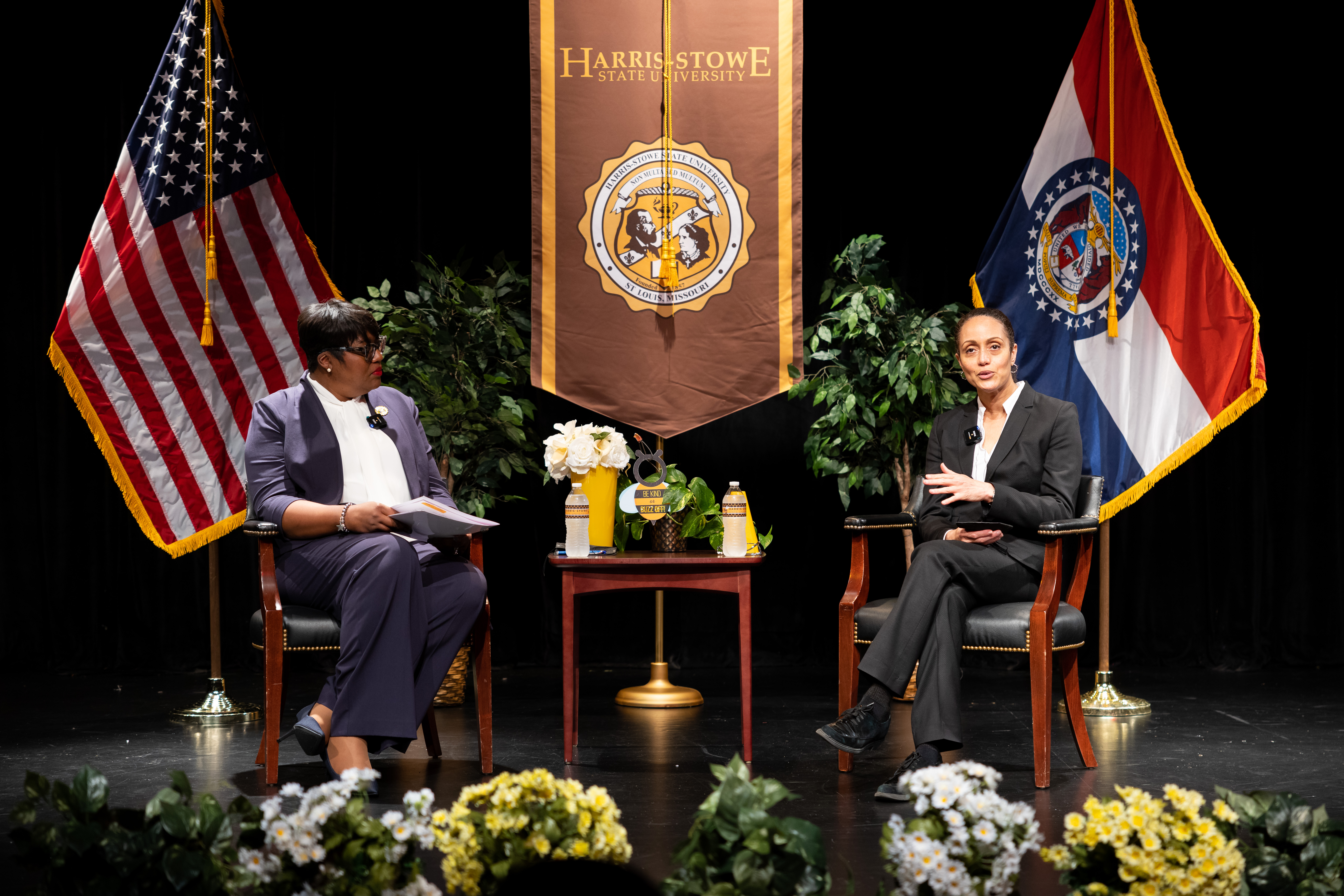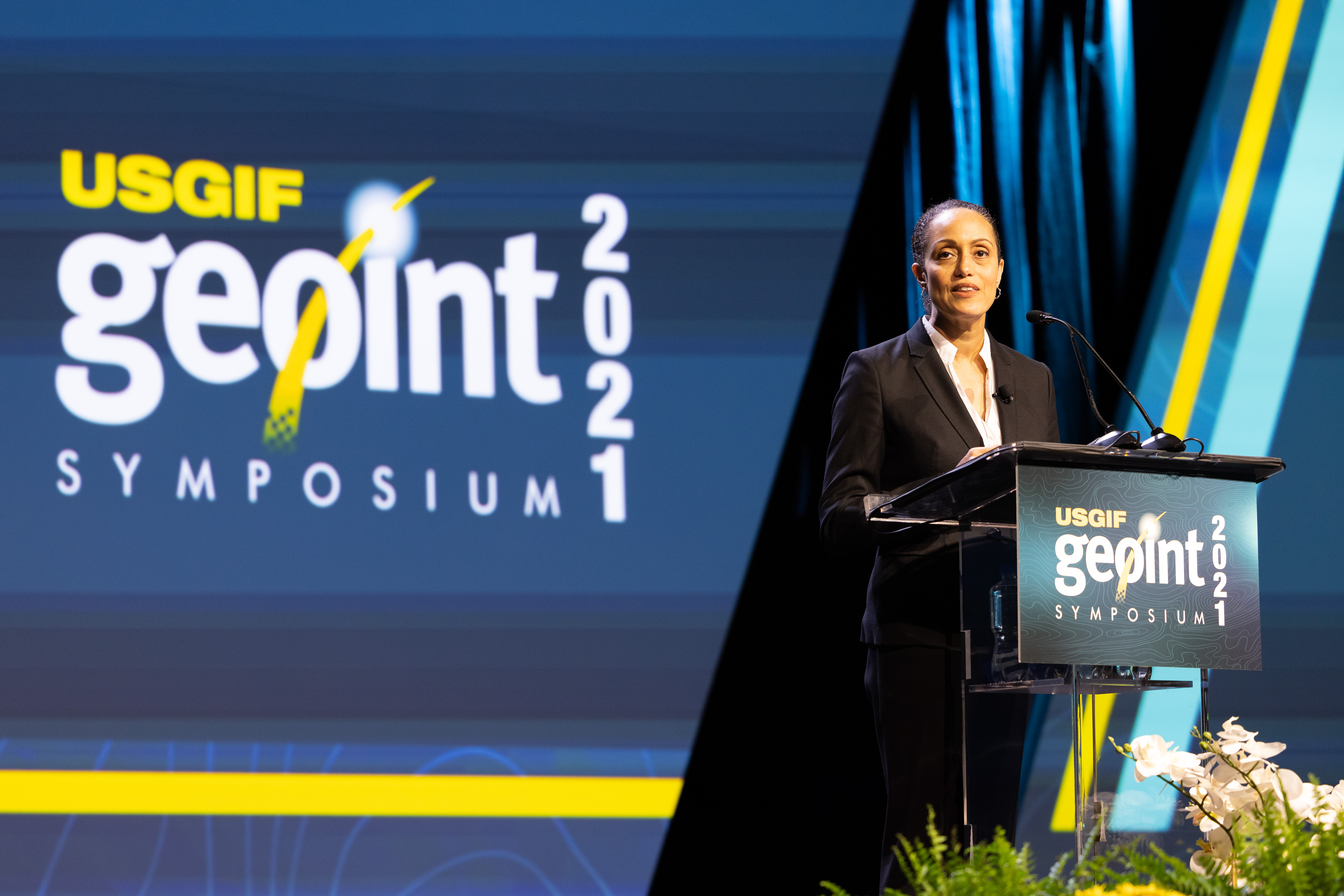Article by Annika Moody, ODNI Office of Strategic Communications
Photos by James Williams, ODNI Office of Strategic Communications
Principal Deputy Director of National Intelligence Dr. Stacey Dixon visited St. Louis this week and spoke with students and industry partners about opportunities within the Intelligence Community.
During her visit, Dixon toured the site of the National Geospatial Intelligence Agency’s new headquarters, spoke to students from the Gateway Global American Youth Business Alliance at NGA’s Moonshot Labs, delivered the keynote remarks at the 2021 Geospatial Intelligence Symposium, and fielded questions from students at Harris-Stowe State University after serving as the inaugural speaker for its “Women in STEM” series.
During her keynote remarks at the GEOINT Symposium on Oct. 6, Dixon emphasized the importance of embracing change and advancing partnerships between government and industry.
“We want to be a better customer,” said Dixon. “We want --- and we need --- the American GEOINT industry to be the strongest and most capable on Earth.”
This year’s conference theme was “Discovery and Connections,” and as the largest gathering of geospatial intelligence professionals in the country, the event was a perfect opportunity for Dixon to highlight the need for adaptability and finding ways to work better together to meet an evolving threat landscape.
“It will be up to us, and it will require the GEOINT community and the IC --- in partnership --- to be resilient and to adapt…and we will do so, together,” said Dixon.

Dixon used space as an example of where commercial entities have surpassed the government in acquisition and technology, a place where “governments used to be the only operators.” She stressed the need for the government to be able “to pivot” to allow the GEOINT industry as a whole to flourish and to remain its biggest supporter, with reforms to the burdensome consumer licensing process.
“We need to put in place a strategy so our private sector partners can remain innovative, responsive and strong,” said Dixon.
The PDDNI said that the Intelligence Community Commercial Space Council created in 2020, to help DoD and commercial and civil space agencies develop effective and coordinated policy has already gone a long way in improving this partnership.
“We believe this is just the beginning of a new, exciting chapter in our relationship,” said Dixon. “We are increasingly integrating industry voices into our deliberations to better understand and address the needs of America’s commercial partners.”
According to Dr. Dixon, NASA did this when it ended the space shuttle program in 2005 and partnered with the private sector, creating a space for innovation to thrive.
“I’ve found that one key to the success of longstanding private sector government partnerships, specifically within the IC and particularly those that provide technical services and products, is understanding our need for security and resiliency,” said Dixon. “The capacity to be secure, resilient and recover quickly is critical not just on the battlefield, but in outer space, in cyberspace, in maritime environments, and in so many other domains where we operate.”
‘Let’s do it together,’ was a prevalent theme throughout Dixon’s trip, even as she spoke with students from the Gateway Global American Youth Business Alliance on their tour through Moonshot Labs, and as she answered questions from students at Harris-Stowe State University.

“Don’t let the fact that you don’t see a lot of people in the field, [like you] stop you from going into it if that’s what you love,” said Dixon. “There are people who are there who will be happy to welcome you in, and even if they aren’t in that particular agency or organization you join, there are allies in other agencies and organizations who can continue to support you and who can talk through things because you may have some similar experiences.”
Dixon’s visit came on the heels of Director of National Intelligence Avril Haines' visit to Florida International University, Sept. 26, and reinforces the DNI’s goal of creating a diverse workforce, recruiting talent and building strong partnerships throughout the country.
HSSU is a member-school of the Thurgood Marshall College Fund, a fund dedicated to helping students attending historically black colleges, universities and institutions.
“I may be the only one that looks like me at the table, but that’s okay,” said Dixon. “I know what I know, and I know what I can contribute to this organization or to this meeting, or this workshop, whatever the case is.”
Dixon shared personal and professional experiences from her career in STEM within the IC.
When asked if STEM was the future of education, she reminded HSSU students that STEM and technology will go a long way in aiding education efforts, but it takes all kinds of academic majors and focuses for the IC to be successful.
“A world where you only have STEM majors doesn’t work well, a world where you have no STEM majors doesn’t work well,” said Dixon. “So we need to continue to have education in all aspects and all areas.”
Whether it was encouraging students to apply their experience and knowledge by serving in the IC, or encouraging stronger partnerships between government and the private sector, Dixon’s trip to St. Louis stressed the opportunities that the Intelligence Community offers to create a stronger and safer nation.





